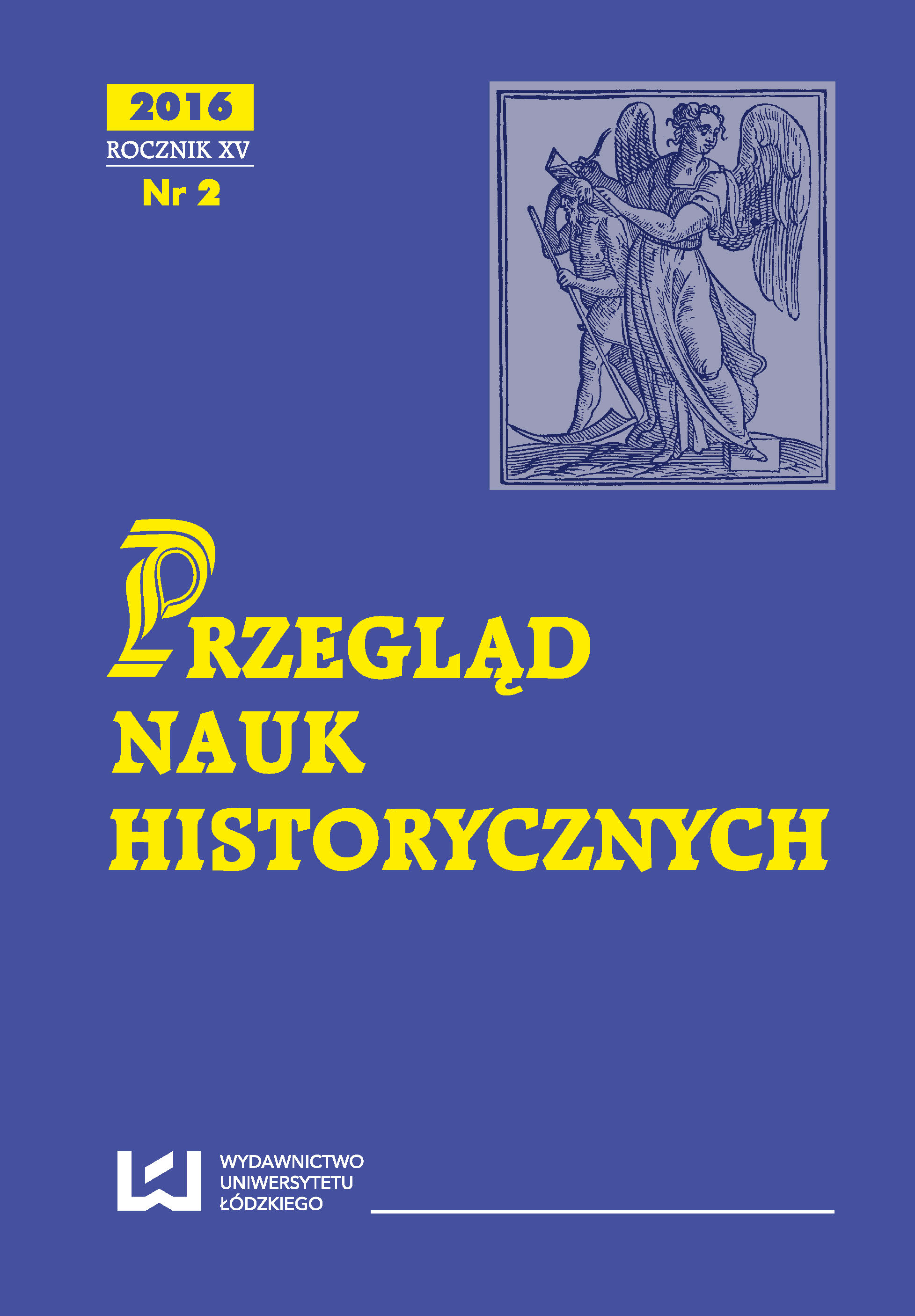Z dziejów stosunków polsko-szwedzkich w dobie przedostatniego bezkrólewia w historii Rzeczypospolitej (1733–1735)
From the history of the Polish–Swedish relations in the era of the penultimate interregnum in the history of the Polish Republic (1733–1735)
Author(s): Zbigniew AnusikSubject(s): Diplomatic history, Political history, Electoral systems, 18th Century
Published by: Wydawnictwo Uniwersytetu Łódzkiego
Summary/Abstract: The aim of the article is to present the Polish–Swedish relations in the era of interregnum after the death of Augustus II. During the Great Northern War (1700–1721) both the Polish Republic and Sweden lost its previous importance in Central and Eastern Europe. The Polish-Lithuanian state for a long time could not overcome the post-war crisis. In Sweden, in turn, a profound political changes took place. Since 1719 the Swedish crown became an elective one and the states had taken full governance in the country. Sweden, increasingly depending on Russia, conducted a prudent and peaceful foreign policy. In the first period of ‘the Age of Liberty’ (frihetstiden) a dominant role in the Swedish political life played the President of the Chancellors Office, Count Arvid Bernhard Horn af Ekebyholm. His attitude was decisive in Swedish policy towards events in the Polish Republic during the era of the penultimate Polish interregnum. Since 1725 Stanislaw Leszczyński, father in law of King Louis XV, was the French candidate for the throne of Poland. The neighbors of the Polish Republic (Russia, Austria and Prussia), in turn, did not want the election of both Leszczyński and the son of Augustus II, Fredrick Augustus of Saxony. When in 1733 on February 1st died Augustus II, the head of the Polish Republic became interrex, Primate Teodor Potocki who openly supported the candidacy of Stanislaw Leszczyński. He sent the envoys of the Polish Republic abroad. Antoni Poniński went to Stockholm in April with the task of applying for a military aid and a clear political declaration in favor of Stanislaw Leszczyński. Sweden had decided, however, to remain neutral towards the events in Poland. It’s possible assistance for the Stanislaws’ cause was to depend on the degree of involvement of France in the Polish affairs. In May 1733 Antoni Poniński left the capital of Sweden and went to Christiania (Oslo) for a meeting with the King of Denmark, Christian VI. Here the Polish diplomat did not achieve basically nothing as well. Both Scandinavian courts avoided the explicit declaration for Stanislaw Leszczyński. Meanwhile, on September 12th 1733 the election of Stanislaw Leszczyński was held. On October 5th Stanislaws’ opponents chose for the Polish throne the elector of Saxony, Frederick Augustus II, who took the name of Augustus III. Events in Poland had become for France an expected excuse to declare war to the Emperor Charles VI (October 10th 1733). France launched a major offensive on the Rhine and northern Italy. In Versailles, however, no one was thinking about launching major operations in the Polish Republic. Meanwhile, in January 1734 Saxon army occupied Cracow. Here the local bishop, Jan Lipski, crowned the King Augustus III. At about the same time, Arvid Horn allowed Swedish volunteers to participate in the defense of Gdansk. More aid to the cause of Leszczyński, however, was not given because the Swedish Riksdag left the final decision on this issue in hands of Arvid Horn who did not intend to get involved in any Polish affairs. On October 5th 1735 France made a preliminary peace with the Emperor. On January 27th 1736, at the request of the court of Versailles, Stanislaw Leszczyński signed his abdication. The penultimate interregnum in the history of the Polish Republic was over. From Stockholm’s point of view neutrality of Sweden during war of Polish Succession proved to be supremely wise. However, many Swedes were dissatisfied with the Arvid Horn’s policy. In 1738 elections to the Riksdag were won by the opposition party of ‘Hats’. In December 1738 Arvid Horn resigned and was forced to withdraw from the political life. So one can say that the former President of the Chancellors Office had paid, after all those years, a very high price for failing to support the candidate of France during the double Polish election in 1733.
Journal: Przegląd Nauk Historycznych
- Issue Year: 14/2015
- Issue No: 1
- Page Range: 5-31
- Page Count: 27
- Language: Polish

